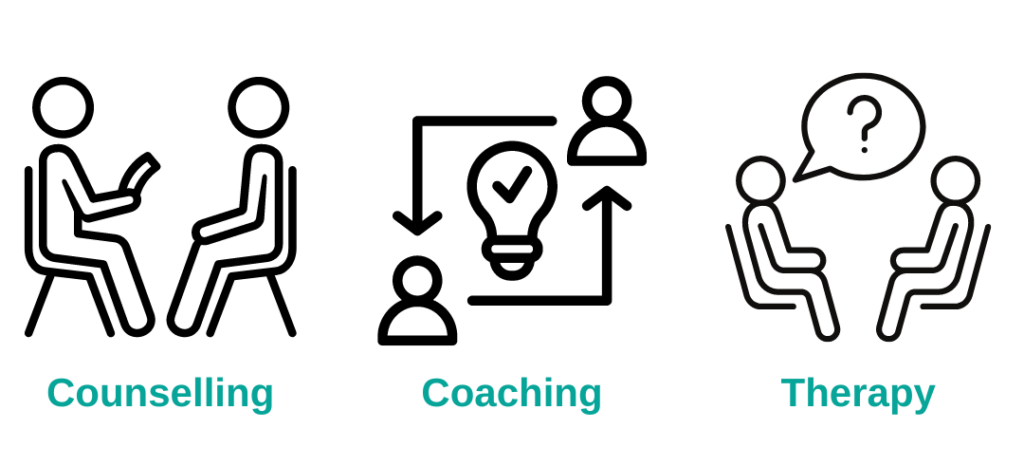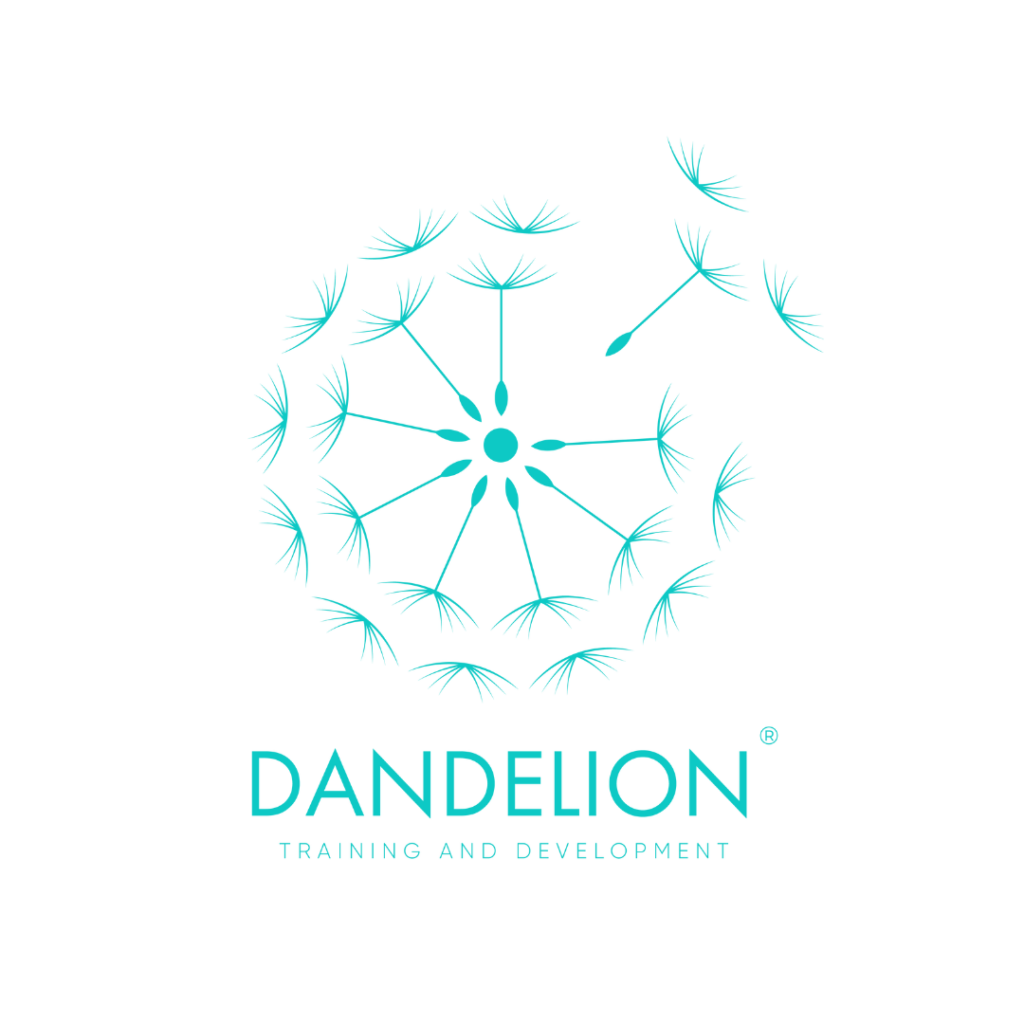Counselling, Coaching or Therapy?

A frequent challenge that can occur, is what modality of support we need when our mental health requires some support. The core options which people are aware of are counselling, coaching and therapy, but which one do we need? and for what? So, we’re taking a mini dip into the different types of support and what they can be used for, to help you identify where to signpost, or what you may need for the children you are working with.
Counselling

Counselling is the practice of working with a trained counsellor, to explore the problems we have had to develop a better understanding of them. It is what we call a talk therapy. We may take a specific problem to them, or be experiencing a set of feelings and they will create an environment in which you can explore your thoughts and feelings, and what you are experiencing. A counsellor looks at what has happened in our past, and seeks to create a space in which you can develop a better understanding of this. They do not tell you what to do, but instead ask you questions and act as a supportive and safe space for you to talk about your experiences, feelings and thoughts, to understand them and decide on your next steps. Counselling is focussed on coping with what has happened to us. It is important to understand that there are lots of different types of counselling and each has their own approach, and you will want to ask about these before beginning.
Coaching

Coaching seeks to understand where we are right now, and to identify where we want to get to, and then work with our coach to identify HOW we will get there. It is therefore, forward focussed and about positive action. In coaching, we will set goals and take action to move from a place of discomfort to a place of growth. Coaches ask questions to help you develop a greater self-awareness and become unstuck. It is underpinned by growth mindset work, and supports clients to take decisive action to help them feel in control and more proactive. Coaches may use your past to help you solve future problems, such as what skills you learnt that you can reuse, but they focus on the present and moving into the future rather than digging in the past. Coaches may have niche areas that they work in, such as child coaching, parent coaching, business coaching or relationship coaching. Our Dandelion Coaches, work with children (and parents) to develop their understanding of themselves and their needs, and implement strategies to move forward to support their mental health. You can find a list of our qualified and insured coaches here
Therapy

Therapy instead provides treatment for mental illness, such as anxiety, depression, OCD or fears and worries etc. It may use therapeutic techniques, such as EMDR (Eye Movement Desensitisation and Reprocessing), BWRT (BrainWorking Recursive Therapy), CBT (Cognitive Behavioural Therapy), DBT (Dialectal Behavioural Therapy), Art Therapy or Hypnotherapy to create a treatment plan with the client to support them to take care of their mental health.
Therapists have different training to counsellors and coaches, but cannot diagnose. If they feel you may need an assessment and diagnosis they may speak to you about this.
Who else is there?
If you need a diagnosis – You will need to see a psychologist or psychiatrist. A psychologist can diagnose and provide a treatment plan, but only a psychiatrist can provide a prescription for medication if this is required.
Want to learn more?
If you want to learn more about child mental health you can join our Level 4 training (here) or keep an eye out for our new courses coming soon (here).
© Dandelion Training and Development – All Rights Reserved
Further help

For more articles about mental health visit – ARTICLES
To learn more about child and adolescent mental health visit – COURSES
For resources to support child and adolescent mental health visit –RESOURCES
